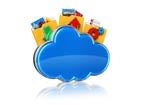There’s no question that in the age of the cloud, distributed databases are a challenge. In fact, it’s the management of distributed SQL databases that has pushed so many organizations creating cloud applications to embrace NoSQL databases that more easily scale.
And yet, a lot of applications are still running on SQL databases that need to move to the cloud. To facilitate that transition, TransLattice provides two flavors of an open source PostgreSQL distributed database implementation. The first is the TransLattice Elastic Database (TED) that Translattice developed. The second is StormDB, which TransLattice acquired in late 2013.
According to TransLattice CEO Frank Huerta, the long-term goal is to merge both technologies under one offering. But Huerta concedes that may take multiple years.
In the meantime, Huerta says customers are increasingly looking for ways to control which data gets stored in which particular geographical region. TED not only provides the ability to mirror distributed databases across the cloud, but also to apply policies that dictate what type of data can be stored in any particular database location. In an age when the location of data matters more than ever, Huerta says that TransLattice expects companies operating on a global basis to be looking for those types of capabilities more and more.
Cloud computing has certainly been a boon to NoSQL databases. But the vast majority of applications still run on SQL databases such as Oracle. As such, it should not come as a surprise to see Oracle offer its database as a cloud service. In the meantime, however, the Oracle computing strategy is still evolving. PostgreSQL databases are designed to provide an alternative that can support most existing Oracle applications, which is a capability that vendors such as TransLattice are looking to exploit.
In 2014, no doubt there will be a lot more SQL databases in the cloud. A debate will occur over when to employ a SQL versus NoSQL database, but the one thing that is certain is that there will be plenty of both.



